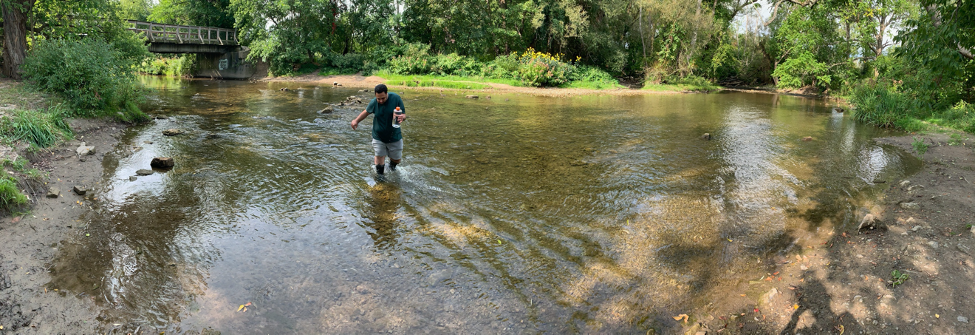Harnessing the Power of Microbial Genome Sequencing and Big Data with High School Students and Teachers
Looking to the future
We aim to develop and strengthen partnerships between local high schools, colleges, biotechnology companies, and local not-for profit organizations and serve as a pipeline for recruiting students to scientific and health-related careers, with an emphasis on those from underrepresented groups. Our students are among the first high school students and teachers to use third generation Oxford Nanopore MinION sequencing technology, giving them first-hand experience with the preparation of genomic DNA samples for sequencing, in school DNA sequencing, tools for determining the makeup of microbial communities from sequencing data, and the construction of a microbial genome through the compilation of a large number of overlapping long MinION sequence reads.
Empowering students
We utilize community-linked citizen science involving metagenomic analyses of water samples in Western New York with underserved high school students, empowering them to assist in safeguarding local water resources for present and future generations. Students will perform project activities during the academic year under the guidance of their teachers and faculty from the partnership. Their data on waterway quality will in addition be shared and publicized by BNW, and their microbial genome sequencing data will ultimately be shared on GenBank.
Real science, real outcomes
Allow high school students and teachers to sequence and analyze a microbial genome, supporting their explorations of Big Data, STEM and health-related careers related to genomics. This authentic research experience for students involving new DNA sequencing technology and big data manipulations will increase their interest, engagement and future performance in STEM, and positively influence their long-term STEM and health-related career goals.The Science Education Partnership Award (SEPA) Program funds innovative pre-kindergarten to grade 12 (P–12) science, technology, engineering and mathematics (STEM) and Informal Science Education (ISE) educational project

